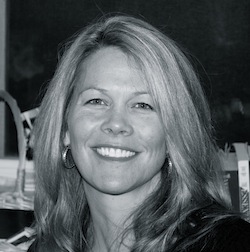 Summer is soon upon us and the issue of summer reading has again raised its head in the magazines and newspapers that, in an effort to stem the tide of irrelevancy, eagerly provide a list of books that must be on our bedside table as the evenings grow longer. They promise their recommendations will allow us to get lost in the dream of the narrative (and thereby lose our interest in the mendacity and/or trauma of daily news, am I the only one to see the irony of this?).
Summer is soon upon us and the issue of summer reading has again raised its head in the magazines and newspapers that, in an effort to stem the tide of irrelevancy, eagerly provide a list of books that must be on our bedside table as the evenings grow longer. They promise their recommendations will allow us to get lost in the dream of the narrative (and thereby lose our interest in the mendacity and/or trauma of daily news, am I the only one to see the irony of this?).
But what is summer reading? Is it different in some appreciable way from winter reading? Lighter, less literary, more guilty pleasure? The very idea of summer reading harkens back to a time when we spent our winters struggling through the subtext of the Scarlet Letter or some other “classic” anticipating the day we would be lounging by the pool with Danielle Steel or to be more au courant, Nora Roberts. This implies that reading is work, or at least a certain kind of reading. For me, reading was never a summer occupation. It has always been a year round sport. I am as likely to read a sci-fi thriller in December as I am to delve into Faulkner in July.
Which leads me to my next question: why do we read? Is it simply to escape the reality of our daily lives, boring for some and far too dramatic for others? Or does reading fill some deeper yearning, some need to find connection, to dance across the boundaries of our souls and touch and be touched by another? There have been passages in novels and short stories that have more than moved me. They have assured me that I am not alone, that someone has felt as I have felt, someone has struggled as I have struggled, someone has desired as I have desired. If the loss of heaven is the corporeal reality of human life, then reading affords me great hope that transcendence has not been forsaken but simply postponed.
And so, here is my list of what to read this summer, this fall, this winter and spring. Enjoy.
Short Stories (in order of preference):
“Brokeback Mountain” by Annie Proulx
“Hateship, Friendship, Courtship. Loveship, Marriage” by Alice Munro
“Bablyon Revisted” by F. Scott Fitzgerald
“Everything That Rises Must Converge” by Flannery O’Connor
“Old Boys, Old Girls” by Edward P. Jones
“Xmas, Jamaica Plain” by Melanie Rae Thon
“A Distant Episode” by Paul Bowles
“Why Don’t You Dance” by Raymond Carver
“It Wasn’t Proust” by Sam Shepard
Short Story Collections:
Gorilla, My Love by Toni Cade Bambara
Cathedral by Raymond Carver
The Shell Collector by Athony Doerr
Interpreter of Maladies by Jhumpa Lahiri
The Boat by Nam Le
Birds of America by Lorrie Moore
Runaway by Alice Munro
Enormous Changes At The Last Minute by Grace Paley
Fiction Since 1960:
(Edited from a class taught by the incomparable Cynthia Nixon)
Giovanni’s Room by James Baldwin
One Hundred Years of Solitude by Gabriel Garcia Maquez
The English Patient by Michael Ondaatje
Wide Sargasso Sea by Jean Rhys (which can’t be fully appreciated without a reread of the sister novel, Jane Eyre by Charlotte Bronte)
Housekeeping by Marilynne Robinson
Old School by Tobias Wolff
What Will I Be Reading This Summer?
Labyrinths by Jorge Luis Borges
Disgrace by J. M. Coetzee
Lolita by Vladimir Nabokov
The Periodic Table by Primo Levi
Blindness by Jose Saramago
The Road by Cormac McCarthy
The Known World by Edward P. Jones
The Things They Carried by Tim O’Brien
July’s People by Nadine Gordimer


I enjoy reading your blog, so I’ve nominated you fora Liebster Award. Don’t know what this is? Read this: http://wkwutk.wordpress.com/2013/01/24/nominated-for-a-liebster-award/.
Thanks and congrats!
So honored to be awarded and am, finally, ready to pass it on. I was holding it close for all of the gifts it gave me. Thank you!
My pleasure. Stay calm and blog!